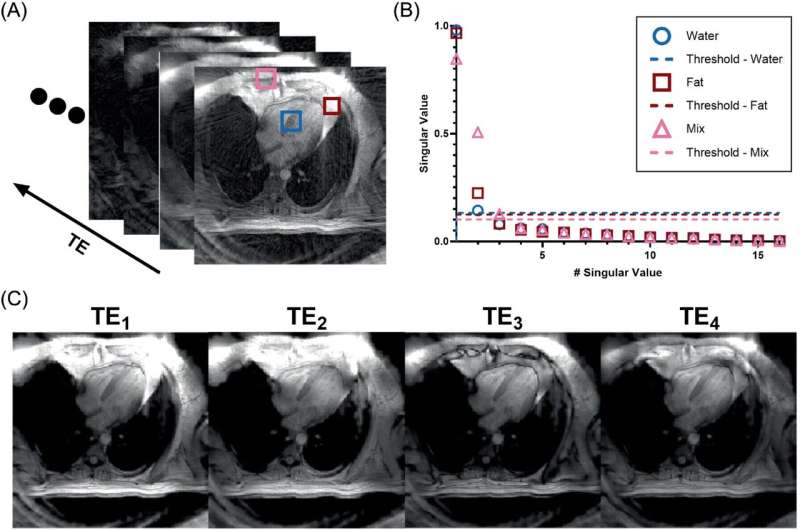The researchers, led by Frederick H. Epstein, Ph.D., of the University of Virginia’s Department of Biomedical Engineering, are seeking to use magnetic resonance imaging (MRI) to assess the composition of adipose tissue—fat—that surrounds the heart. Analyzing this tissue could let doctors identify patients at greatest risk for potentially deadly cardiac problems such as coronary artery disease, atrial fibrillation (irregular heartbeat) and heart failure, and to predict how well those patients may respond to treatments.
The paper is published in the journal Magnetic Resonance in Medicine.
Early testing of the technique has produced encouraging signs that the approach could be a powerful tool to improve patient care.

